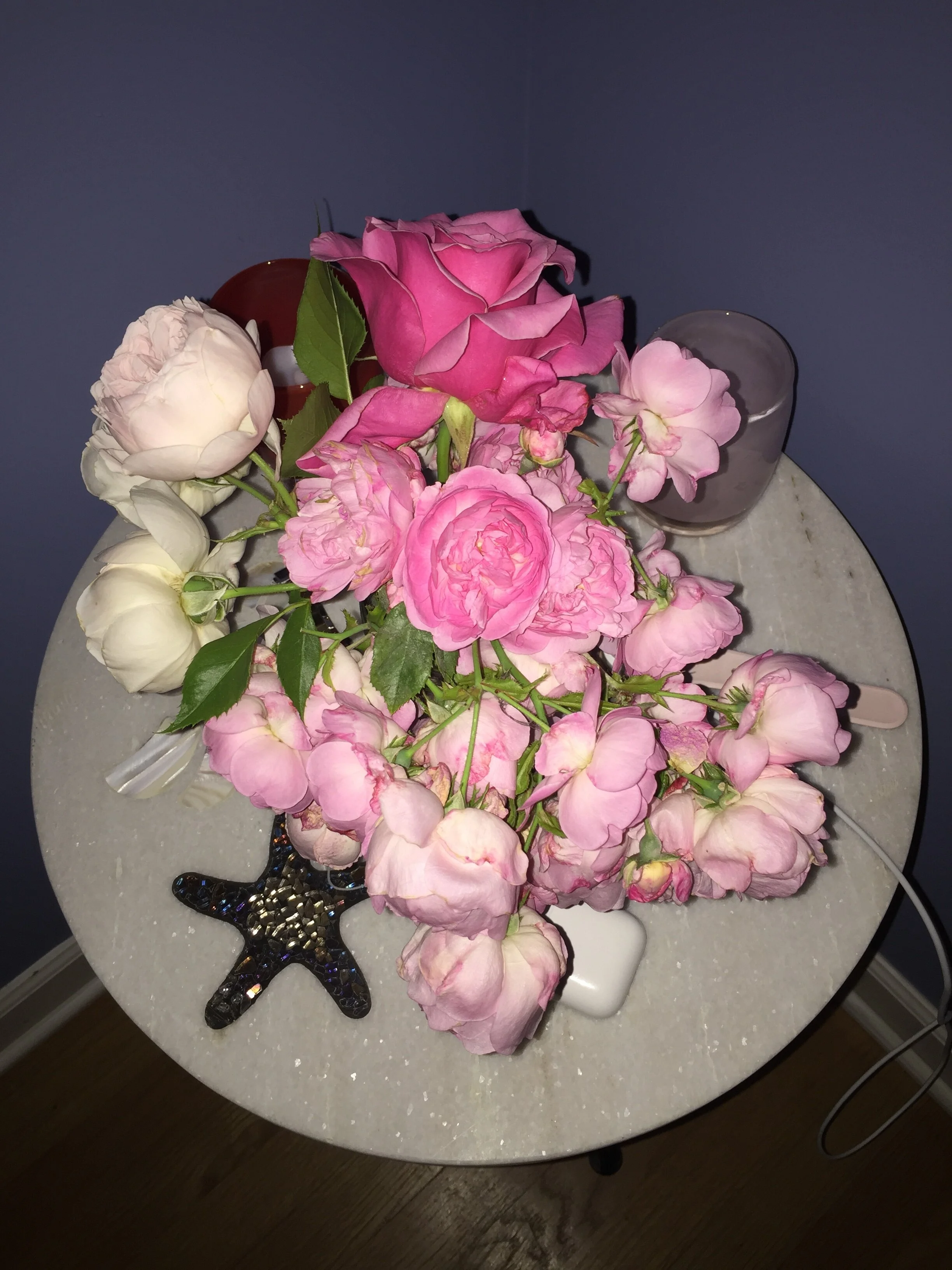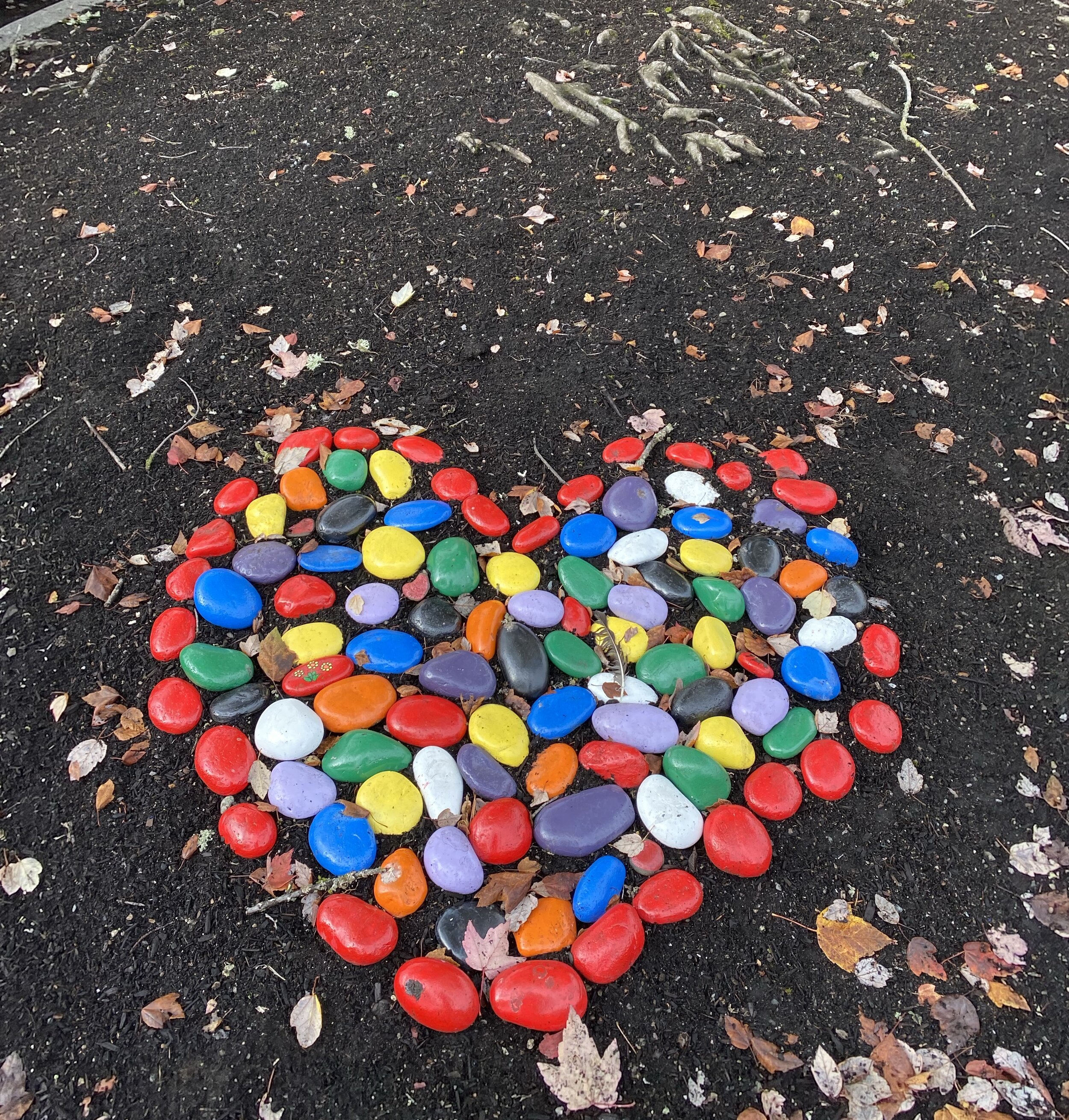"You must change your life," Rilke wrote in his poem The Archaic Torso of Apollo.
For some reason I keep hearing this line in my head, "You must change your life" -- like a seasonal leitmotif. Maybe it's reminding me of my 2009 theme: Everything has to be different.
At this point, there's no going back. Change has happened, it still is, it's been exciting and it's hurt like a muthu, too. We've all heard it millions of times: human beings + change = tantrumy relationship. That's the beautiful struggle of it all.
Love it or hate it: Change is inevitable.
How you deal with change is in your control -- and it's not.
Here's some information that could help.
Everyone relates to change differently because of how they're wired. This is something I learned at coaching school, and it helped me accept my relationship with change, a lot.
Maybe it will illuminate something and help you, too.
So, to start: Think of a continuum or a line that represents sameness and change. Sameness is on the far left, Change-o-rama is on the far right. Now remember that each of us can move along it like a skater. But we are more anchored to one area of this continuum.
1. At the far left are personalities who Prefer Life to Remain the Same (5 - 10% of the population) These people love the status quo and are most comfy when things remain the same: same city, same partner, same job, same friends, same hair cut, same vacation spots. They want the song to remain the same and are likely to lose their footing when change comes visiting unexpectedly. However, every body clock needs a bit of mixing up. These folks run on a change clock of about 10 years. This is the amount of time it takes before someone will say Enough already, time to try something new.
2. In the middle of this change continuum are those who Prefer Life to have a Familiar Sameness but With Some Diversity and Improvement (65% of the population). In other words, these folks like to hang with what's familiar and known, but with their aims also fixed on improving and developing the status quo. They like a bit of change here and there but not too much or too often. They are adaptable but don't push it, baby. Their change clock is on a 3 - 7 year cycle.
3. And off to the right are, well, let's call them the Change Junkies (25% of the population). These types really like the turnstyles to keep moving. They like newness and going into jobs where they can make a difference with their new ideas, and when they've arrived at their goals, they're outta there -- on to the next thing. Their change cycle is on a clock of 1 - 2 years.
All of us indentifies with one of these change-relationship styles the most. There's nothing to judge here, neither style is better than the other, it just is.
But understanding where you fall on this change/sameness continuum might help you accept the way you deal with change and move through life's thresholds and transitions (or wrestle through them as many of us do).
I, for one, am a bit of a change junky. I used to feel like a flake, like I couldn't commit, I had ADD etc etc, whip, flog, hair shirt. The longest job I've held is four years and every fall I want to throw out last fall's clothes like a snake shedding skin. And to know it's just how I'm wired, BOY, easy breathing. And now I can make decisions that support this personality type rather than, well, buy more hair shirts and flogging toys. (I should add, I can make the change, but the change itself still makes me go EEK.)
On another note, I have a friend who needs a long time to process a change like a new job or a move, and she has been known to talk and think a change through for years before jumping. Because change is scary! But she accepts it as part of her way. She's saved a lot of money on hair shirts over the years, let me tell you, the clever minx.
And where do you see yourself here?
How can this information support you as change rolls in and out of your life? Whether it comes uninvited or you go running toward it. And sometimes it comes clanging down like a lightning bolt. Ouch.
Yes, change is inevitable. And Rilke is right, you must change your life. That's the flow of all existence.
So how are you going to take on the next change that comes your way?
Because it's comin' for you -- for all of us. And thank god for that.
 Hey, I'm no doctor. But I'm going to say this anyway.
There is a LOT of talk right now about the pros and cons of getting a swine flu shot.
Hey, I'm no doctor. But I'm going to say this anyway.
There is a LOT of talk right now about the pros and cons of getting a swine flu shot.
 “I don’t want to be a quitter.”
“I don’t want to be a quitter.”






 Many people are floating around a bit these days. A lot of questions in the air:
What should I do with my life now? What kind of work could I do next?
Many people are floating around a bit these days. A lot of questions in the air:
What should I do with my life now? What kind of work could I do next? It is really better to be self-employed than work at a j-j-job?
It is really better to be self-employed than work at a j-j-job? When you start something new, like a business or you have an idea for one, who do you listen to in collecting constructive feedback?
When you start something new, like a business or you have an idea for one, who do you listen to in collecting constructive feedback?
This blog is moving over to Beauty Hunter on Substack, and I’m taking you with me.